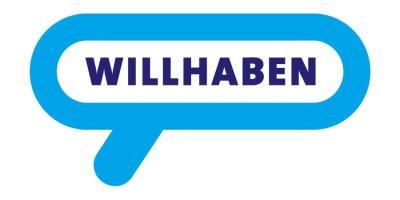While it becomes more and more common to book hotels and flights online, consumers are encountering a growing number of problems with online travel services. These services are now among the most frequent consumer complaints according to the European Consumer Centres.
The European Commission and EU consumer protection authorities launched a coordinated screening of 352 price comparison and travel booking websites across the EU in October 2016. They found that prices were not reliable on 235 websites, two thirds of the sites checked. For example, additional price elements were added at a late stage of the booking process without clearly informing the consumer or promotional prices did not correspond to any available service.
Why were comparison tools websites selected for this screening?
Since the online booking of air travel and hotels is increasingly popular among European consumers, more and more comparison tools exist online and have become a very popular source of information. More than 80% of European consumers used price comparison websites in 2010, with five out of ten consumers using them at least once a month (see online). The trend has grown further with the growing use of smartphones and tablets which allow consumers to access and compare information on prices, quality and product specifications at all time. It was indeed timely to verify the compliance of comparison tools operators with the existing legal framework and to take corrective action where needed.
What type of comparison tool websites was checked?
Most of the checked websites (339 of the 352) were comparing prices in the travel sector. Some authorities wished to expand the scope of the screening beyond the travel sector (Sweep Plus). As a result, they examined websites that offered comparison of prices in financial, TV, internet, phone services or comparisons of electricity and gas offers (13 websites in total).
Moreover, the majority of the comparison tools were offering booking options or were readdressing to websites where the consumer could proceed with their purchase. Only a very limited number of websites (24 of the 352) were simply comparing prices. As a result, the sweep examined, in practice, mainly travel booking websites.
What did national authorities check?
In this screening, national authorities checked whether comparison tools provided essential, truthful and clear information on the price of the service or product and on the provider of the comparison tool. They also examined the clarity of the ranking, of the comparison method used and the way the user reviews were presented.
Key findings
Of the 352 websites checked, only 23% (117) passed the first test for compliance with the relevant EU consumer rules and almost 67% of sites (235) were flagged for further investigation.
- What you believe you'll pay, is it what you will actually pay? In one third of the cases, the price first shown is not the same as the final price.
- Is it an offer or is it just bait? In one fifth of the cases, promotional offers were not really available.
- Puzzled mind or puzzled price? In almost one third of the cases the total price or the way it was calculated was not clear.
- Last cheap room in the hotel or simply last promoted room on that website? In one in four cases, websites did not specify that statements about scarcity (e.g. "only 2 left", "only available today") applied strictly to their own website.
What kinds of problems came up?
The biggest problems are related to the way the price is presented and analysed. In one third of the cases, the price first shown is not the same as the final price, while in one fifth of the cases, promotional offers did not really exist. Moreover, in almost one third of the cases the total price – or the way this was calculated – was not clear. Other problems related to scarcity as certain comparison websites did not specify that statements about scarcity (e.g. "only 2 left", "only available today") applied strictly to their own website, or to user reviews that were presented in an unclear or un-transparent way and/or seemed untrue.
What happens next?
The 235 websites with irregularities will have to correct the irregularities. Consumer Protection Cooperation authorities will ensure they comply by activating their national enforcement procedures.
What EU rules is the Sweep on Comparison Tools based upon?
The following EU consumer rules and their translation into national laws are relevant here:
- Directive 2005/29/EC – Unfair Commercial Practices Directive (UCPD)
The Directive applies to ‘business-to-consumer commercial practices' and its Guidance specifies that its provisions apply to practices occurring on price comparison websites. Moreover, Annex I of the UCPD contains a list of practices which are always considered unfair and are thus prohibited (black list). - Directive 2011/83/EU – Consumer Rights Directive (CRD)
The Directive covers those Comparison Tool operators who offer consumers the opportunity to directly purchase products or services on their website. - Directive 2000/31/EC – E-commerce Directive
The e-Commerce Directive applies to information society services, which can include the services provided by operators of websites and online platforms which allow consumers to buy a good or service.









